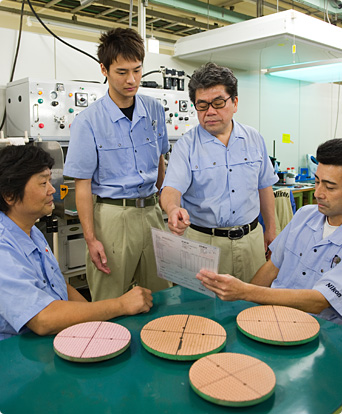The polishing technician must possess exceptional sensitivity

According to Mr. Kudo, people who are good at cooking make good polishing technicians. "When you cook, you obtain the ingredients, prepare them, cook them, and put out the tableware just in time to serve the food as it is ready. Some people have several dishes on the go at once. People who are good at cooking can perform many processes at once, and at the same time be thinking about what they need to do next. In other words, they are not hard-pressed by the tasks at hand, but are anticipating the tasks ahead. There is a certain similarity with the requirements of lens-polishing."
"Polishing technicians also need to have sensitivity," adds Mr. Kudo. "The work requires micrometer-level precision, so it is important that the technician does not overlook small changes and is able to perceive when something is out of the ordinary. In short, sensitivity is extremely important."
The polishing process is becoming increasingly mechanized. For high-precision polishing, however, the adjustments made by technicians are indispensable. They refine their sensitivity and then put it to use polishing lenses. Approaching the highest possible levels of precision and quality requires a technician's sensitivity.

